Imagine fueling the rocket that catapults the next big innovation into orbit. That’s the game, the arena where bold ideas meet the bold capital needed to bring them to life. Venture capital firms stand at this bustling crossroads, where tech gurus and eager investors forge alliances. Aspire to tap into that pulse?
In this deep dive, we’re unpacking the world of startup alchemy. Thriving on the risk for potentially stratospheric returns, these financial titans are not just backers but visionaries charting the course for trailblazing entrepreneurs.
Expect enlightenment on the DNA of top-tier investment powerhouses – the SoftBank Vision Funds, the Y Combinators shaping the echoes of tomorrow, the Andreesen Horowitz’s crafting our digital landscape.
We’ll unveil the enigma, spotlighting how these entities drive innovation funding and seed groundbreaking ventures – a tour de force through the lifeblood of business’s boldest frontier.
By the final full stop, you’ll have the inside track on how these capital catalysts operate, what makes them tick, and perhaps how they can propel your own voyage into the entrepreneurial stratosphere.
The Best Venture Capital Firms
| Venture Capital Fund | Focus Area/Sector | Stage | Diversity/Inclusion Focus |
|---|---|---|---|
| Accel Partners | Technology, Media, Consumer, Healthcare, Enterprise SaaS | Early-stage to Growth-stage | No specific focus, but broad outreach |
| Cross Culture Venture Capital | Culture-influencing startups | Early-stage | Emphasis on multicultural entrepreneurs |
| Black Angel Tech Fund | Technology | Seed-stage to Early-stage | African-American tech entrepreneurs |
| Harlem Capital Partners | Diverse Founders or Women-led companies | Early-stage | Emphasis on diversity |
| Valmo Ventures | Technology, Health & Wellness, Media, Retail, Consumer Products | Various stages | Focus on value-driven investments |
| EchoVC Partners | Technology, Consumer Internet, Digital Media, Mobile | Seed-stage, Early-stage | Pan-African and underserved markets |
| Base Ventures | Innovative technology startups | Seed stage | No specific focus |
| Diversecity Ventures | Technology with Diverse leadership | Seed-stage, Early-stage | Emphasis on women and underrepresented founders |
| Greylock Partners | Consumer, Enterprise Software, Infrastructure, Media | Early-stage, Growth-stage | No specific focus |
| Presidential Innovation Fellows | Federal government partnerships, Technology innovation | Not a fund but a fellowship program | Supporting US government innovation |
| Google Ventures (GV) | Life Sciences, Consumer, Enterprise, AI, Robotics | Seed-stage to Growth-stage | No specific focus, but varied portfolio |
| Founders First Capital Partners | Revenue-generating businesses led by minority, military veterans | Early-stage | Underrepresented entrepreneurs in tech |
| Sequoia Capital | Technology, Energy, Financial, Healthcare, Internet, Mobile | Seed-stage to Growth-stage and IPOs | No specific focus |
| Founders Fund | Technology, Science, Engineering | Seed-stage to Late-stage | No specific focus |
| Pipeline Angels | Women and non-binary femme social entrepreneurs | Seed-stage | Emphasis on women and non-binary leaders |
| Dreamit Ventures | HealthTech, UrbanTech, SecureTech | Early-stage | No specific focus |
| Humble Ventures | Healthcare, Education, Consumer, Media | Early-stage | Promoting diversity in tech |
| Digitalundivided | Startups founded by Black and Latinx women | Pre-seed to Seed-stage | Focus on Black and Latinx women entrepreneurs |
Read more about them below.
Accel Partners
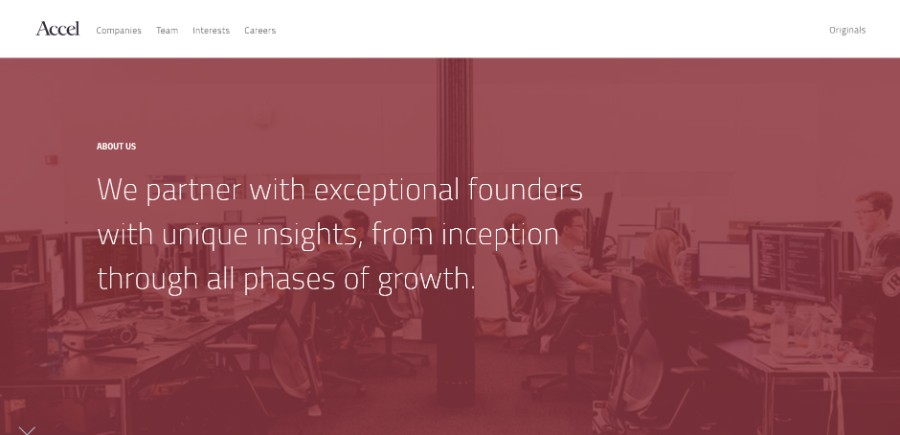
Accel Partners is one of the venture capital companies that impressed through the number of startups they financed and advised.
The number goes up to 300 in various funding rounds, and it doesn’t stop there, making it a high-growth VC firm that should be on top of the list for anyone interested in equity financing services.
Companies such as Facebook and Spotify worked with the teams at Accel Partners, and they expanded internationally through effective investor relations.
Cross Culture Venture Capital
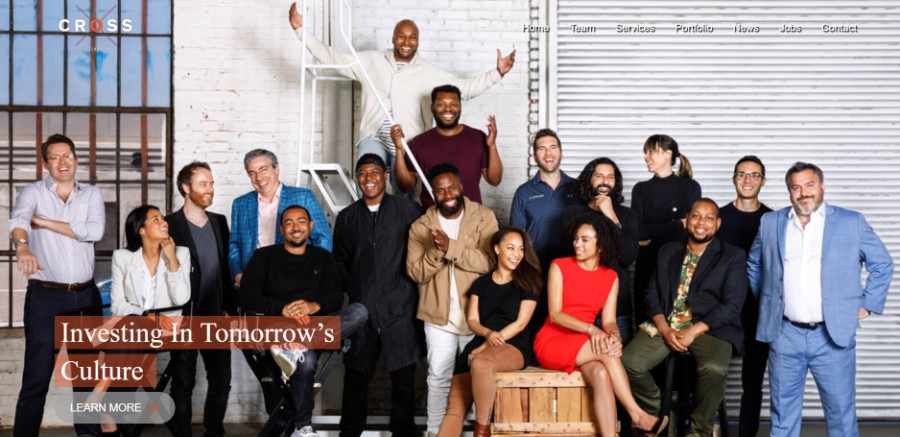
Cross Culture Venture Capital is a VC firm that was founded by people who already knew how the industry worked.
The entrepreneurs that put together this investment firm have a lot of experience and impressive track records, which helped the business obtain a strategic partnership with Atom Factory.
What is great about Cross Culture is that they also invest in startups that don’t seem to offer the same kind of safe future promise as others, deviating from traditional investment criteria.
They like to encourage minority-owned startups that usually find it difficult to bootstrap or get on the right foot. Take as an example Blavity or Wonderschool.
Black Angel Tech Fund
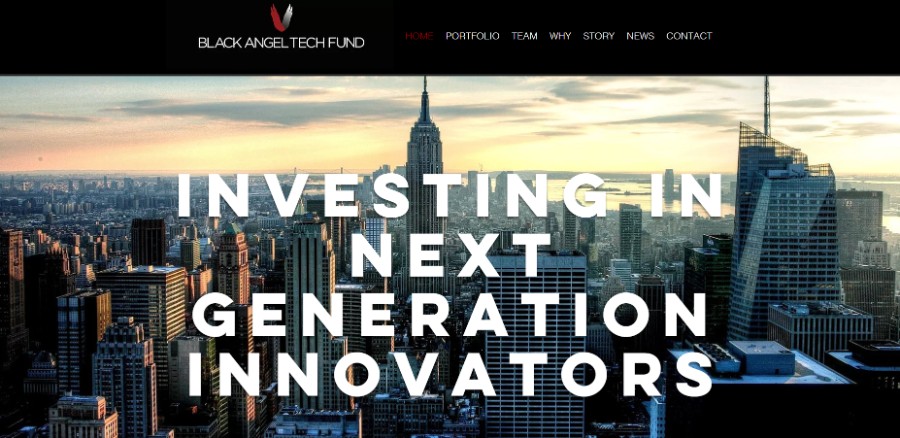
Black Angel is a venture capital firm that invests in tech businesses. As the name suggests, this firm was started by successful black entrepreneurs that handled the stigma surrounding black company founders.
They participated in a summit and exposed their ideas there, happening to become one of the top venture capital firms that support black-owned companies, through both equity financing and seed investment.
Harlem Capital Partners
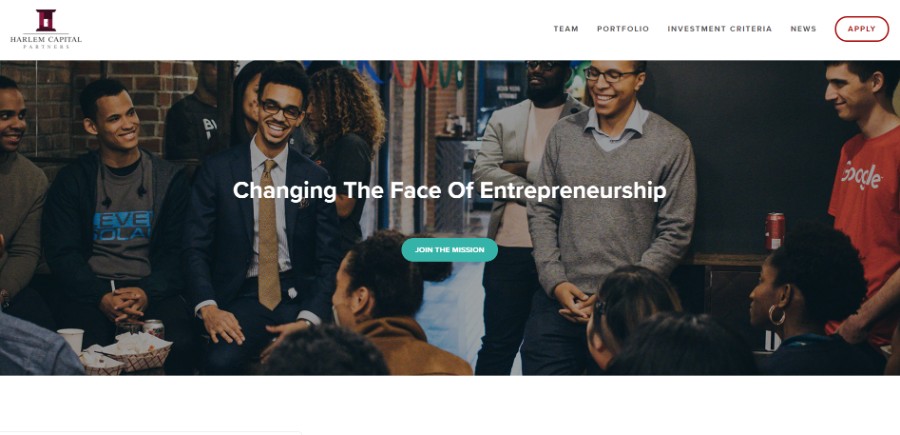
HCP, short for Harlem Capital Partners, is one of the best venture capital firms out there.
It is also a VC firm that encourages minority-owned startups instead of the ones that show the highest chance to become profitable in a short time through traditional risk assessment methods.
They also encouraged entrepreneur women to succeed, and their main mission is to finance and advise 1000 of such startups.
Valmo Ventures
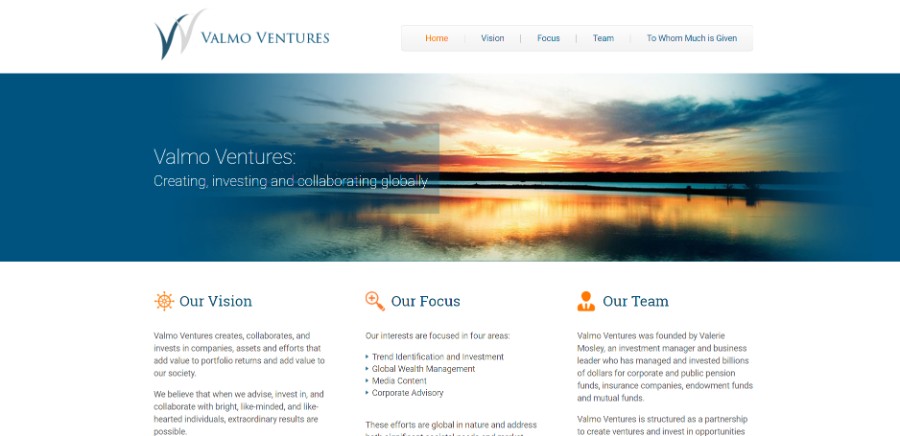
Valerie Mosley is the founder of Valmo Ventures, which is another venture capital firm that decided to focus on the less popular startup founders who find it troubling to stand out from the crowd.
Valmo Venture helps these startups with financing rounds so that their net worth and market valuation are visibly increased in the shortest amount of time. The company also considers the social impact of these startups as important as their return on investment (ROI).
EchoVC Partners

All people heard at least once in a lifetime about LinkedIn or Pandora. Well, the venture capital firms behind them include EchoVC Partners. The firm has two main centers: North America and South Africa.
Eghosa Omoigui, the founder of the company, was behind the advising and financing options of the aforementioned colossal companies. The company mentioned that they follow a stage-agnostic method to sustain startups, expanding their portfolio companies globally.
Base Ventures
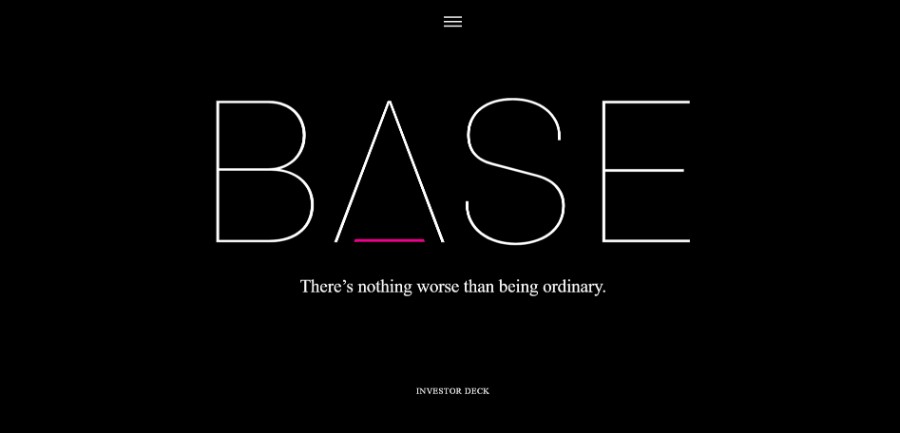
Base Ventures is one of the new capital venture firms that was noticed because of their initiative to sustain gender neutrality and ethnic gaps observed in the startup ecosystem, more precisely in launching a company for the first time.
Because of this, Base Ventures rapidly obtained funding resources and institutional investors that they used for companies such as StyleSeat. Erik Moore is the founder of Base Ventures, and he is part of the most influential black people in tech.
Diversecity Ventures
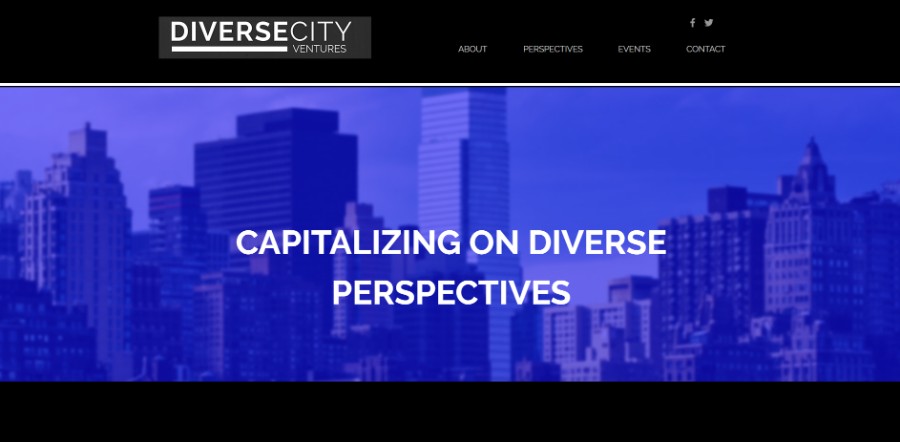
Diversecity Ventures, a venture capital firm specializing in seed investment and startup funding, was founded by Mariah Lichtenstern.
This firm is unique in its investment criteria as it focuses on startups often overlooked due to their perceived lower market valuation and risk assessment.
Such companies include early-stage startups committed to creating social, economic, or environmental changes.
Diversecity aims to encourage a diverse startup ecosystem, focusing on both cultural and geographic diversity. This is especially relevant for high-growth companies from all around the world that may otherwise struggle with fundraising rounds.
Backstage Capital
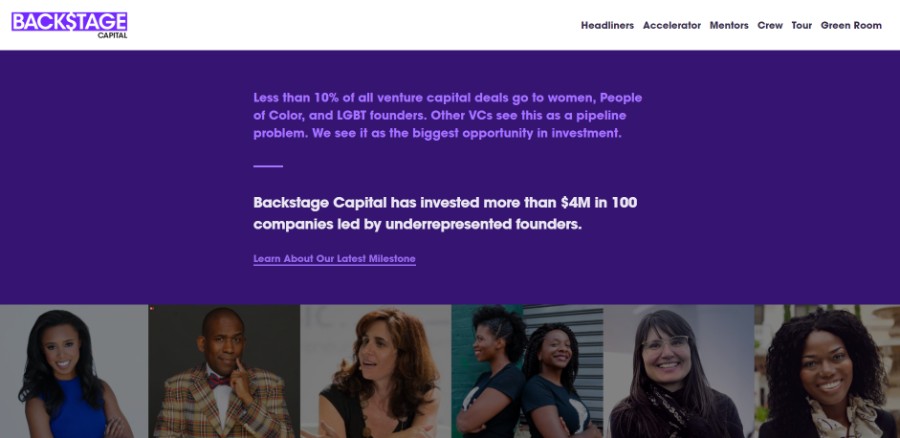
Backstage Capital, recognized as one of the top venture capital firms for equity financing, specifically focuses on angel investors and high-growth companies owned by women, people of color, and LGBTQ members.
Arlan Hamilton, the visionary behind this initiative, aims to level the ethnic-gender gap that currently exists in society’s investor relations. To date, Backstage Capital has invested over $2 million in Series A, Series B, and Series C rounds to support startups like Tinsel, a company developing wearable tech jewelry for women.
Greylock Partners

Greylock Partners is a stalwart in the venture capital industry, having existed for a considerable time. Over the past decade, Greylock has executed successful exit strategies through IPOs for numerous Internet-based portfolio companies.
Boasting an impressive deal flow, more than 150 startups that Greylock advised are now public and performing exceptionally well.
With a focus on tech startups, they’ve shifted their investment towards monetizing websites and sharing this valuable information with their partners.
Presidential Innovation Fellows
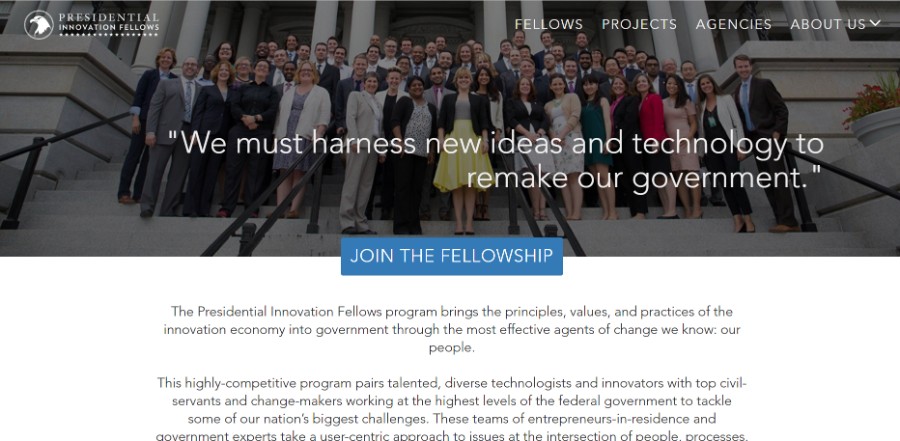
Founded in 2012, the Presidential Innovation Fellows is a VC firm focusing on seed investment and startup funding in the government sector.
Amy Wilson caught the interest of this firm with her pitch deck, proposing a government-wide accelerator program called Digital Acquisition.
Their primary mission is to financially back startups with the potential for significant return on investment (ROI), aiming to be game-changers in the government sector.
GV

GV (Google Ventures), part of Alphabet Inc., is an institutional investor involved in capital injection for over 300 startups across diverse domains like science, medicine, AI, and applied robotics.
Since its inception in 2009, GV has actively participated in fundraising rounds, supporting ventures such as Tala and Vida, and fostering innovation within the startup ecosystem.
Founders First Capital Partners

Founders First Capital Partners, led by Kim Folsom, provides equity financing to startups owned by minority groups, women, or military veterans. Unique in its approach, this venture capital firm focuses on long-term sustainability and aims to support businesses that can be passed on to future generations.
They follow a rigorous due diligence process to ensure that their investments have a meaningful social impact while also offering a solid return on investment (ROI).
Sequoia Capital

Sequoia Capital, one of the oldest and most respected venture capital firms, was founded in 1972 by Don Valentine.
Known for their portfolio companies like Apple, Google, and PayPal, Sequoia has a history of making strategic investments in various industries.
With a proven track record in tech startups and unicorn companies, Sequoia is a major player in private equity and venture capital.
Founders Fund
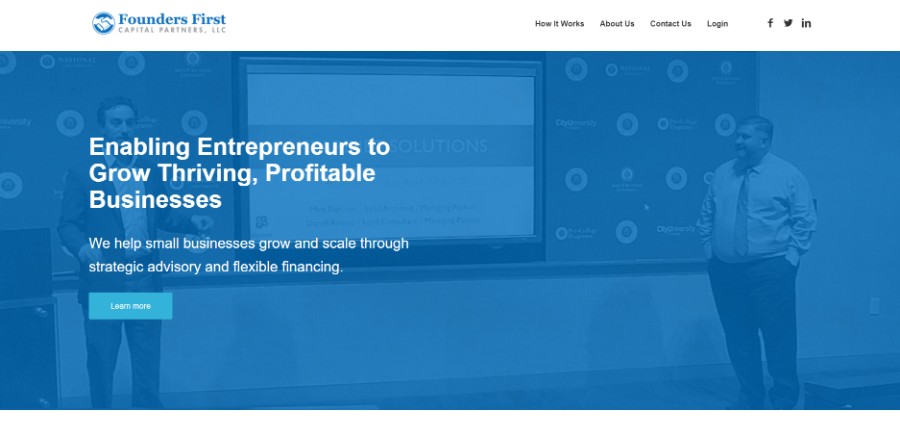
Founders Fund has a streamlined mission, focusing on equity financing for the most innovative startups, both online and offline.
With a portfolio that includes colossal companies like Spotify and SpaceX, this venture capital firm has shown exceptional risk assessment in targeting high-growth companies, becoming a prominent player in the startup funding landscape.
Pipeline Angels
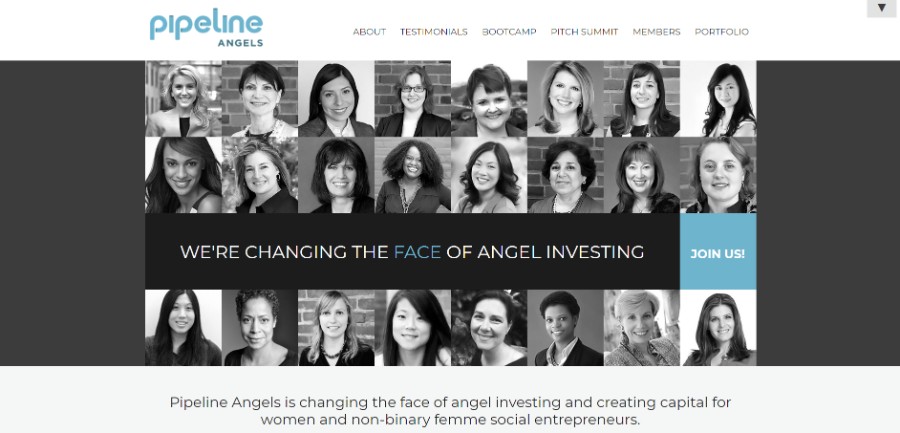
Founded in 2011, Pipeline Angels specializes in seed investment for startups owned by women.
With a funding pool that has exceeded $4 million, the venture capital firm aims to bridge the gender gap by financially backing and empowering female entrepreneurs.
Utilizing pitch competitions as their primary deal flow method, they also invest in boot camps, emphasizing the importance of entrepreneurial education and due diligence.
Dreamit Ventures

Dreamit Ventures earns its spot on the list of top venture capital firms by offering capital injection into startups that focus on healthcare systems and urban tech solutions.
In partnership with Comcast Ventures, Dreamit also diversifies its investment criteria by supporting minority-owned startups, aiming to foster a balanced startup ecosystem.
Humble Ventures
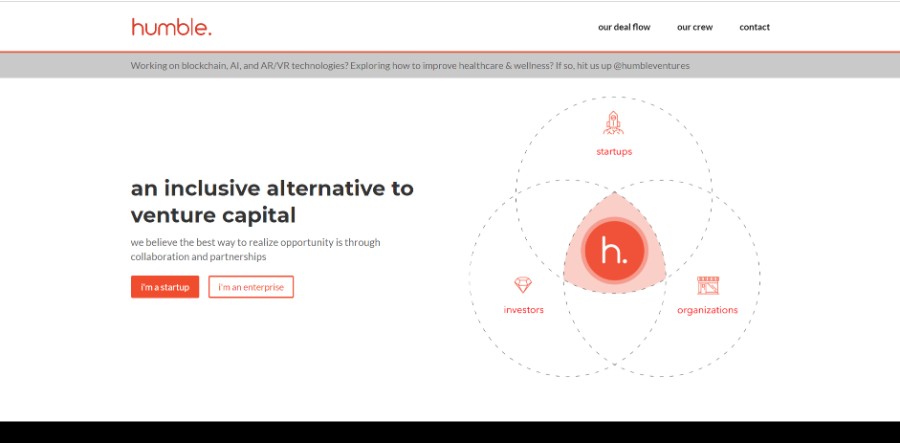
Humble Ventures primarily focuses on early-stage startups owned by women and minorities, with a portfolio that spans around 50 companies, such as KweliTV, theCut, and The Mentor Method.
Concentrating on market valuation and term sheets, Humble Ventures aims to provide not just financial backing but also investor relations support for its portfolio companies.
Digitalundivided
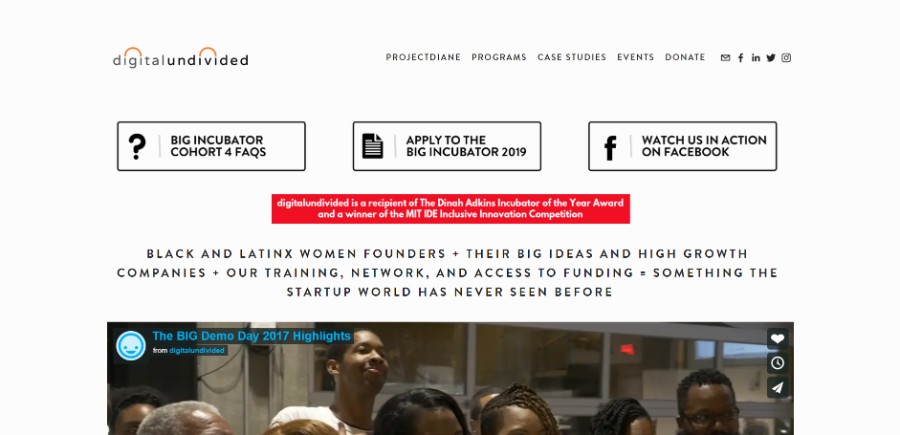
Kathryn Finney founded Digitalundivided in 2012 with a focus on backing black and Latinx-owned startups. By offering financial support and strategic investment opportunities, the firm is committed to scaling these startups for maximum impact.
The venture capital firm undergoes rigorous due diligence to ensure its investments meet both social and financial return on investment (ROI) criteria.
Top VC partners
Bill Gurley
Bill Gurley is a General Partner at Hummer Winblad Venture Partners, a leading venture capital firm in Silicon Valley that focuses on startup funding.
He first joined the VC firm in 1997 through a strategic expansion of his network while he was still working in investor relations at Deutsche Bank. This venture capital firm transformed into Benchmark in 1999, diversifying its portfolio companies and funding rounds.
Steve Anderson
Steve Anderson had a vast experience in the startup ecosystem before he finally joined Kleiner Perkins Caufield Byers as a partner. The tech companies that he frequented before are market valuation giants like Digital Equipment Corporation, Starbucks, and eBay.
Anderson maintained his General Partner position at Baseline Ventures after leaving Kleiner Perkins Caufield Byers in 2003 and spending some time at Microsoft.
Josh Kopelman
Josh Kopelman initially worked at Infonautics, and later founded a P2P marketplace in 1999. After enjoying one year of high-growth success, eBay acquired his startup, Half.
Kopelman continued running Half within eBay, leveraging the company’s robust exit strategy. In 2004, he founded First Round Capital, becoming a General Partner and establishing the firm’s investment criteria.
Rob Hayes
Rob Hayes joined Palm in 1999, where he started Palm’s venture fund focusing on seed investment and Series A funding. He held his Director position until 2001, when he became a Senior Director of Business Development.
Hayes later joined Omidyar Networks in 2004, only to expand his investment practice two years later by joining First Round Capital as a General Partner, dealing primarily with early-stage startups.
Mary Meeker
Mary Meeker worked as a securities analyst from 1986 to 1991 and moved into the role of a Managing Director and Research Analyst at Morgan Stanley, focusing on tech startups and IPOs.
She became popular for her annual Internet Trends Report and finally joined Kleiner Perkins Caufield Byers as a Partner, offering both financial backing and strategic investment advice.
Kristen Green
Kristen Green started her career as a Certified Public Accountant at Deloitte and later became an Equity Research Analyst, focusing on market valuation and risk assessment.
She later joined Banc of America Securities as a Vice President in 2003. After seven years, she moved on to become an advisor at TSG Consumer Partners, a venture capital firm with a strong focus on due diligence. A year later, she founded Forerunner Ventures, where she remains a Founding Partner.
Aydin Senkut
Aydin Senkut joined Silicon Graphics in 1996 and later moved to Google in 1999. At Google, he managed strategic accounts and syndication, focusing on return on investment (ROI).
He left Google in 2005 to start Felicis Ventures, where he has since served as a Founding/Managing Partner, specializing in capital injections and equity financing.
Peter Fenton
Peter Fenton was a General Manager at Virage between 1996 and 1998. He joined Accel Partners as a Managing Partner, and his successes there, particularly in acquisition and private equity investments, propelled him to Benchmark in 2006, where he continues to work today.
Danny Rimer
Danny Rimer began his career as an Equity Research Analyst at Hambrecht and Quist, deeply focusing on tech startups and the Internet. After the company was purchased by Chase Manhattan Bank, he decided to join his family at Index Ventures.
Since then, he has been a key figure at the venture capital firm, focusing on fundraising rounds and term sheets for portfolio companies.
FAQ on the Top Venture Capital Firms
What Are Venture Capital Firms?
Think of them as the godparents of the startup world. They come armed with capital and sprinkle it on promising companies in their infancy, or sometimes a tad older, aiming to help them scale new heights like the proverbial Jack and his beanstalk.
How Do Venture Capital Firms Make Money?
They’re like sharp-eyed eagles spotting prey from miles away. When a venture capital firm invests, it’s gunning for equity—sometimes big, sometimes small. They play the long game, waiting for the business to either go public or get acquired, and that’s when they cash in.
What Types of Companies Do Venture Capital Firms Invest In?
They’ve got a thing for the bold and the brave, the ones breaking new ground—think tech startups, FinTech, Biotech. They’re not much for the mom-and-pop shops; they crave the potential unicorns that can transform markets and behaviors.
What Is the Process of Getting Venture Capital Funding?
It’s a dance. Picture an elaborate ballroom scene—the pitch is your entrance, your business plan your attire. Then, you waltz through due diligence and term sheet negotiations. If the chemistry’s right, investment flows. But remember, they’re picking partners for a potentially rocky road, not just a quick twirl.
What Is the Difference Between Venture Capital and Angel Investing?
Scale it down a notch, and you have angel investing. Angels fly in earlier, with their own cash in smaller amounts, often when the venture is just leaving the nest. Venture capital firms pack a heavier punch, often swooping in with more substantial funds during subsequent growth stages.
How Do Venture Capitalists Value a Startup?
Art meets science; it’s a craft. VCs weigh everything—product viability, market size, the team’s expertise, growth potential—and then some. It’s like they’ve got a crystal ball but with a lot of data points feeding into it, painting a picture of what could be a gold mine or a money pit.
What Do Venture Capitalists Look for in a Startup?
It’s the full monty—they need a smashing idea, a market ripe for the plucking, and a team that’s got grit and wits. If you’ve got a pitch deck that tells a compelling story, a clear path to return on investment, you’re halfway through the door.
How Long Do Venture Capital Firms Invest in a Company?
They’re not clock watchers but are more like marathon runners with an eye on the finish line. From seed funding to Series C and beyond, they stick around for the ride, usually around 5 to 7 years, sometimes longer, all geared towards that eventual exit strategy.
What Happens If a Venture Capital-Invested Company Fails?
Let’s not sugarcoat it; it’s a bummer. Everyone loses on that boat. The venture capital firm may write off the investment, the founders and team regroup and hopefully, lessons are learned. It’s the nature of this high-stakes seesaw, push for the peaks but sometimes you hit valleys.
Can Small Businesses Attract Venture Capital Firms?
It’s a tall order, not your usual jam. Venture capital types have an appetite for companies that can make it big, really big. If you’ve got a small business that’s more slow and steady than skyrocket, chances are you might find better luck with other financing routes.
Conclusion
We’ve journeyed through the terrain of venture capital, where the stakes are sky-high and the gamble reaps wild rewards or a tumble down the rabbit hole. Our exploration brought to light examples of investment juggernauts and the eclectic cast they back – from dashing tech disruptors to biotech innovators.
- Silicon Valley’s titans
- The emergent markets’ champs
- The glory-seeking mavericks
They’ve all been part of the story, each with strategies as distinctive as their portfolio companies.
In this narrative, though, the main takeaway? It’s clear as crystal – venture capital firms aren’t just piggy banks. They’re architects of the future, harnessing capital to engineer landscapes where fledgling ventures can take flight, soar, and occasionally, nosedive. So, whether you’re crafting a pitch deck or just captivated by the hive of activity that is startup financing, remember the faces we’ve unveiled here; they’re the pulse, the lifeblood, the unseen hand that turns the wheels of innovation.
- Free Streaming Heaven: Top Apps Like Tubi - April 18, 2024
- Crafting the Perfect Pitch to Secure Investors for Your Mobile App - April 18, 2024
- 5 Ways to Incorporate AI Into Your Project Management Workflow - April 18, 2024









